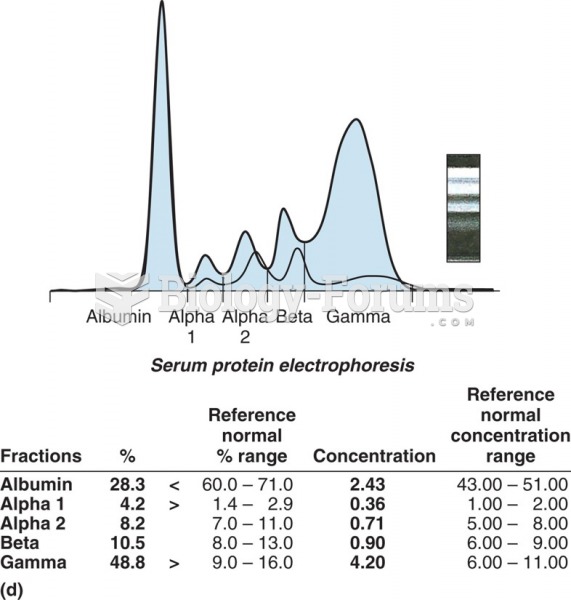|
|
|
People with alcoholism are at a much greater risk of malnutrition than are other people and usually exhibit low levels of most vitamins (especially folic acid). This is because alcohol often takes the place of 50% of their daily intake of calories, with little nutritional value contained in it.
For pediatric patients, intravenous fluids are the most commonly cited products involved in medication errors that are reported to the USP.
Asthma occurs in one in 11 children and in one in 12 adults. African Americans and Latinos have a higher risk for developing asthma than other groups.
In the United States, there is a birth every 8 seconds, according to the U.S. Census Bureau's Population Clock.
Illicit drug use costs the United States approximately $181 billion every year.







